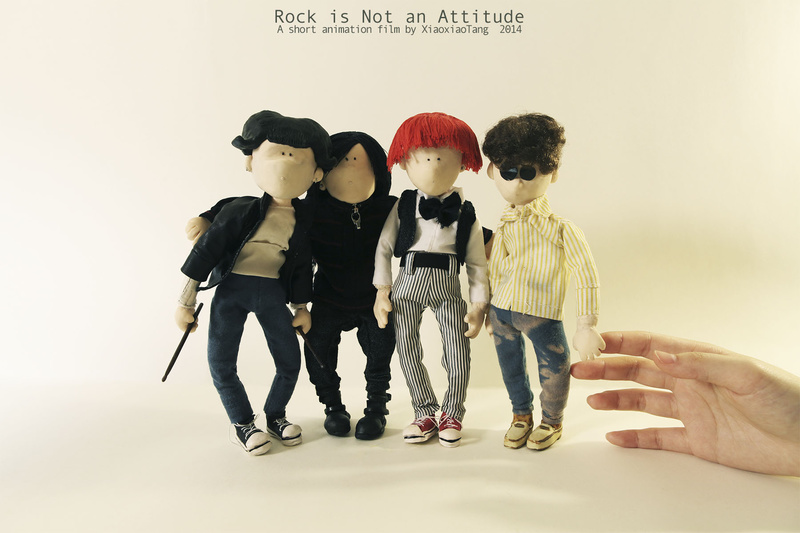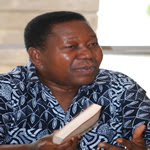ROFFEKE: What do you find as the advantages and challenges of working with a co-writer as opposed to writing alone?
JAVIER BADILLO: It depends on the compatibility of the temperament and personality of each writer. In our case, I discovered Nat’s working style suited me just fine, so we became an excellent collaborative partnership. To be more specific on how we work together: after we’ve done the initial beat-sheet and structure, we usually chat about the scenes at length, openly, and without any edits. If we make each other laugh, or cry, or feel excited, we know we’re on the right track and we write the ideas down on a piece of paper. After that, I go into our screenwriting software and translate all our brainstorming into the proper script format, and add dialogue suggestions and rough action staging. Then Nat comes in the next day and rewrites what I wrote, improving the dramatic tension, polishing the dialogue, and generally making the whole thing better. Then we repeat the process until we’re satisfied, and move on to another sequence. Much better, more efficient, and more satisfying than writing alone!
ROFFEKE: What lifelessons did you learn from your abuela (or any other member of your family) ?
JAVIER: I learned to be humble and grateful for everything I have, and everyone I know. My grandma was a strict matriarch who loved her big family very much, and we owe her for a large part of our upbringing. Our parents had to work often, so me, my brother, and all our cousins would stay at our grandma’s house, under her care.
ROFFEKE: You are/will soon be shooting the feature length version of "Lupe Q and the Galactic Corn Cake". What did you do in the short film that you will NOT do in the feature film? What did you NOT do in the short film that you will do in the feature film?
JAVIER: The short film is focused mainly on the relationship between Lupe and her abuela, where we see Lupe resisting her abuela’s corn cake (arepa) cooking lessons. However, on the feature, we will focus more on Lupe’s relationship with her bandmates Toro and Pachi. We will also see Lupe’s abuela and Pachi’s mom playing important roles, but the main plot, and most of the drama and comedy, is centered around the coming-of-age awkwardness and secret crushes of the three teenagers, as they (incompetently) attempt to save the world from an alien invasion. In the short film we see Lupe suddenly battling a giant monster in what seems like a spaceship, without any setup or explanation, for comedic effect – but in the feature we will follow the band from the moment they discover their unexpected ability to destroy space monsters with their punk rock music, all the way to the moment they infiltrate an orbiting space station to rescue their parents, and have a face-off against a gigantic alien creature called the “Great Worm”.
ROFFEKE: Nat, you have written poetry chapbooks. What skills from writing poetry come in handy as you co-write screenplays?
NAT MARSHIK: I would say that poetry, in contrast to novel writing, forces you to be very economical with your words. And this is a skill that is very important in screenwriting. Every line of dialogue carries weight. The process of screenwriting is distilling big ideas into their short form.
ROFFEKE: In 2022, your crowdfunded first feature "Roads of Ithriyah" won a Leo Award. What advice would you give filmmakers who want to crowdfund their film?
JAVIER: Involve your community! If you work part-time jobs, like I do, involve them in your creative endeavors and fundraising efforts - you’d be surprised how many people are curious about filmmaking and want to help you succeed. Crowdfunding can be rewarding in more ways than just to raise money - it’s a great way to share your love for filmmaking with everyone. And it’s an excellent way to hone and practice your movie sales pitch, which is a skill that can be improved, and will serve you throughout your filmmaking career.
ROFFEKE: Optional question: Without getting too political, how are you feeling about the results of the recently concluded US elections? How do you feel about the coming months and years? How will your filmmaking/writing be affected?
JAVIER: I feel both saddened and disappointed that the US political landscape has slipped further into the far right. It has created a climate of fear and mistrust that is dividing families and friendships. Their political opposition isn’t doing much better either, platform-wise. I just hope that kind, educated, regular people “on the ground” organize themselves, resist the rising wave of hate, and protect each other until it passes. As an artist I can’t help but be affected by it, and it compels me to write characters and themes that explore the feelings of helplessness and frustration that people bottle up inside. Ironically, I feel a strange and unfortunate familiarity with all this that sends a chill down my back; my birth country Venezuela is currently suffering from an advanced stage of economic turmoil, with a populist dictator spewing far left inflammatory political rhetoric – and I see parallels developing in the United States, on the opposite end of the spectrum. I just hope the US doesn’t end up like Venezuela.
Logline: Aliens. Punk Rock. Corn Cakes. In space, only grandma's latin cooking will save you.
Synopsis: Lupe doesn’t care about her abuela’s cooking lessons, she just wants to rock with her badass punk band. But when Lupe finds herself battling an alien monster with her band, her abuela's lessons will remind her that punk rock is more than just loud music, and connecting with her Latin roots may just save their lives.






































































































































































































